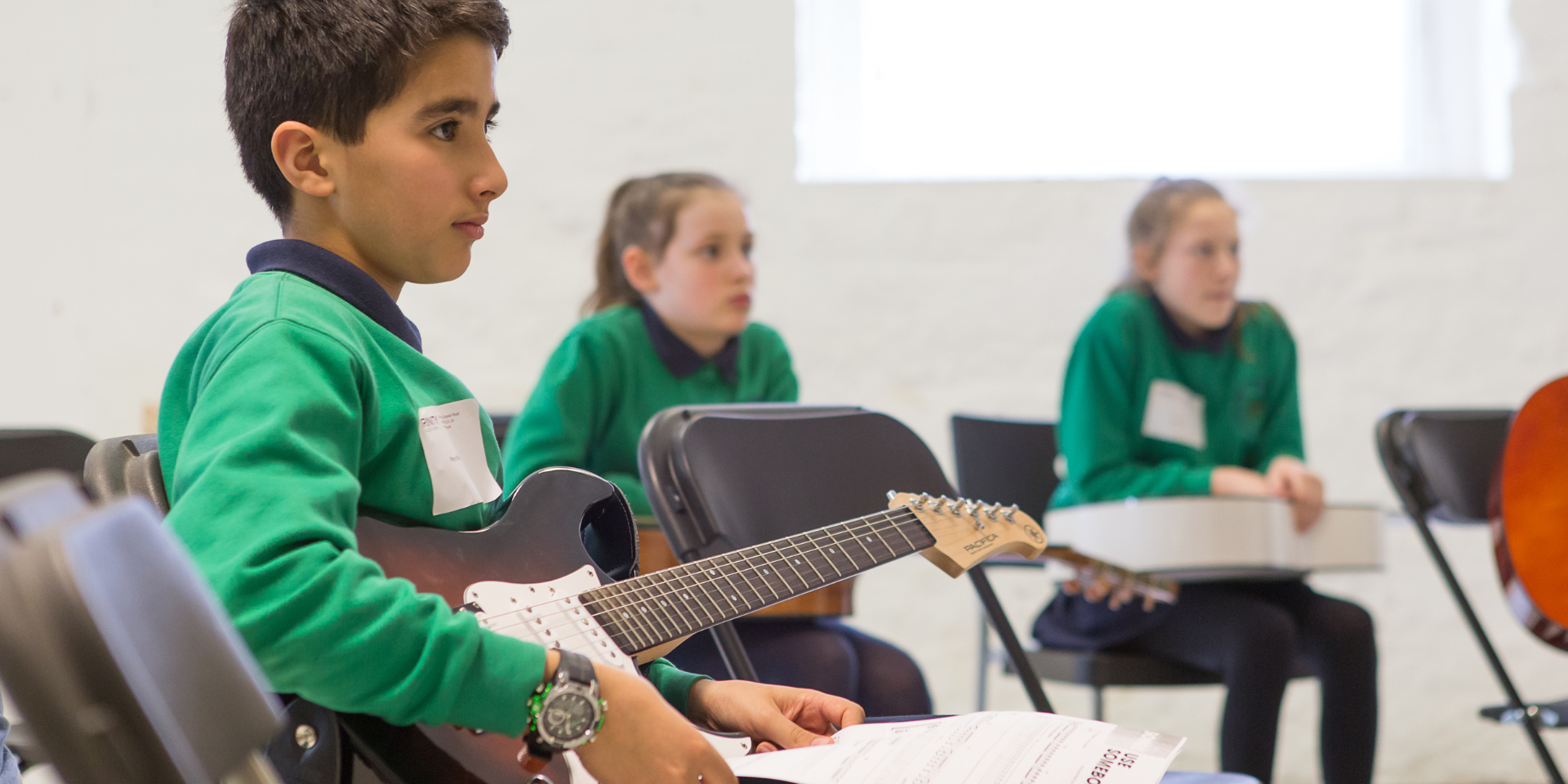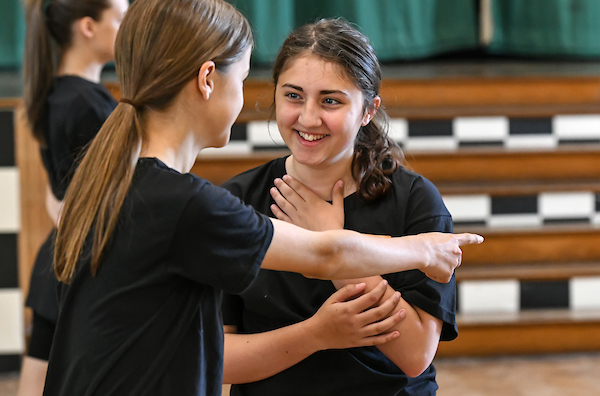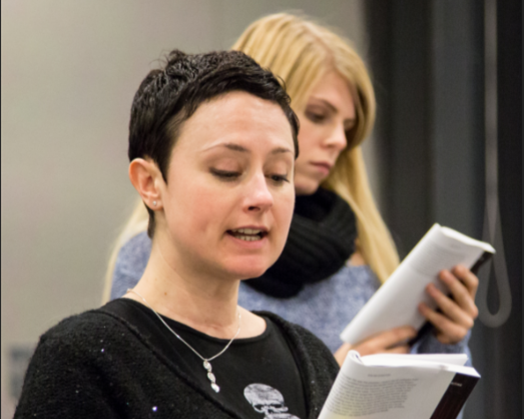
Developing early music theory and knowledge in a primary setting

BY: John Molloy
20 June 2022
In schools across the UK, phonics, reading and mathematics have a rightful place in daily learning, developing a range of language and knowledge, but the same focus is not always applied to the rich communication and mastery of our musical language. As with our spoken languages the earlier this starts, the more positive and articulate the outcome.
In September last year I had the privilege of being invited to work with a federation of primary schools in North Yorkshire, delivering music lessons on a weekly basis. Each week, through listening, singing and playing instruments the children have explored how the language of music works, how it is used, how it is both a solo and community activity and how it can be used to express feelings and emotions. As this year draws to a close I asked the staff in the schools how they saw the benefits of regular musical tuition.
Kari Fry, Foundation and KS1
'The benefits of music are great, perhaps more in terms of their emotional learning. They enjoy music and look forward to it each week! In terms of the benefits to wider class learning - they are now more settled in class. They sing (even the youngest children in Nursery) from the heart and will have a go at everything. It speaks to them on a level that learning maths and English doesn’t seem to do! I’d almost say spiritual! In school, children sometimes struggle with their concentration, struggling to focus, but in music we don’t need to have any ‘brain breaks’ - they give it their all and I think that says it all!'
Kate Ridley - Teacher in Charge
‘When I first arrived at our school and asked our children to sing for the first time, I was amazed at how little confidence they had when singing aloud and performing. The progress they have made, while taking part in weekly lessons, particularly in singing, has been astounding. There is a monumental difference in their confidence when performing. They like to share the songs they have been singing with other members of staff and can talk confidently about their learning in Music. The children have been able to access a wide range of music provision and have thoroughly enjoyed each of the sessions.’
Working with a powerful resource
To introduce them to, and to advance their written musical language understanding as part of this project the students in the KS2 classes have been working through the Introduction to Music Theory resource, written by Naomi Yandell and published by TCL Press (available in print and ebook versions) .
Using this bitesize, age-appropriate resource, students have established a growing understanding of, and confidence with, the basics of how our musical language is built and applied. Covering topics like understanding stave placement and drawing stems, note lengths, clefs, treble and bass clef notation, rests, signs and symbols students have seen and heard how music works and learnt to employ the language they have been studying. Once learnt, taking this knowledge and using it to make music on an instrument or in singing empowers the student to find and develop their musical voice.
The step-by-step approach of the workbooks lends themselves so well to the classroom setting with a layout much like other school textbooks. The ‘did you know’, ‘handy tip’ and ‘remember’ boxes aid both pupil and teacher alike, as once the concept of the page has been introduced and explained the student has a reference to go back to while completing the exercises. Taking around 15-20 minutes each week, the students have completed the whole book.
You can see a review of this resource by visiting Music Teacher magazine.
This is a great stand-alone resource but it can also be used alongside wider arts projects. In this project all the KS2 students involved have also been working towards Arts Award qualifications. Arts Award offers a great vehicle for students to achieve recognition for demonstrating what they have discovered, learnt, and experienced in their music sessions.
What do the students think?
So how do the children who have taken part feel? We asked them what they thought about learning the language of music and getting more involved in music making inside and out of school. Here are some of their thoughts:
‘Knowing how music works helps me play the songs I am learning. Learning the different signs and symbols used in music is useful and fun - in particular how the maths behind music works - it’s really interesting to know how long each note lasts!'
'Learning about music and getting involved in doing it have made me want to explore music outside school - like going to watch a pantomime or getting involved in a performance or show. I am more interested now because I understand it more!’
What is great about this programme is that we have been able to demonstrate how to incorporate theoretical learning in a fun way, which the children have been able to connect back immediately to their practical music making. Learning the language and gaining confidence in how to use it empowers the child in their learning.
Celebrating their progress with an Arts Award is then just the cherry on top!‘We train for big performances where the parents come in and listen….. I learnt to play, practised and then played Twinkle Twinkle Little Star on the piano in front of the parents and my friends and I was a bit scared but overall I felt very proud!' Thomas (age 6)




Comments & Replies